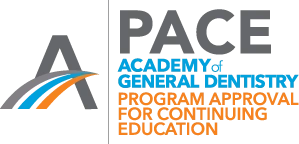Effective Adult Learning for Oral Health Education
COURSE NUMBER: 74
Credit Hours:
1 Hour(s)
SHARE
The purpose of this course is to provide dental practitioners with strategies to effectively educate their adult patients in order to prevent and/or manage dental disease. An overview of adult education principles as well as practical stra...
(Use this feature to create assignments for your students and staff.)
Overview
The purpose of this course is to provide dental practitioners with strategies to effectively educate their adult patients in order to prevent and/or manage dental disease. An overview of adult education principles as well as practical strategies for educating adult learners in the dental setting will be provided.
The purpose of this course is to provide dental practitioners with strategies to effectively educate their adult patients in order to prevent and/or manage dental disease. An overview of adult education principles as well as practical strategies for educating adult learners in the dental setting will be provided.
Intended Audience:
Dental Assistants, Dental Hygiene Students, Dental Hygienists, Dental Students, Dentists, Dental Assistant Students
Date Course Online:
Dec 11, 2005
Last Revision Date:
Jan 19, 2017
Course Expiration Date:
Jan 18, 2020
Cost:
Free
Method:
Self-instructional
AGD Subject Code(s):
Learning Objectives
Upon completion of this course, the dental professional should be able to:
- Describe the origins of adult learning theory and the principles of good practice.
- Explain the importance of prior experience in adult learning.
- Provide examples of open-ended questions to elicit information from the patient.
- Describe the Stages of Change and explain how a dental professional would assess a patient's Stage of Change.
- Explain strategies for moving patients through the Stages of Change.
- Describe how to make learning relevant to the patient.
- Explain locus of control and provide examples of questions that might be used to assess locus of control.
- Describe self-direction and autonomy and how they impact adult learning.
- Describe Gardner's Multiple Intelligences and Kolb's Learning Styles and how they might be used to develop patient autonomy.
Disclaimers
Participants must always be aware of the hazards of using limited knowledge in integrating new techniques or procedures into their practice. Only sound evidence-based dentistry should be used in patient therapy. Note: Registration is required to take test.
Submission Information
Recognition
Approved PACE Program Provider
THE PROCTER & GAMBLE COMPANY
Nationally Approved PACE Program Provider for FAGD/MAGD credit.
Approval does not imply acceptance by any regulatory authority or AGD endorsement.
8/1/2021 to 7/31/2027
Provider ID# 211886
(Use this feature to create assignments for your students and staff.)



